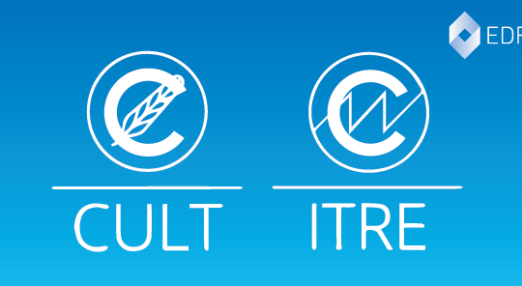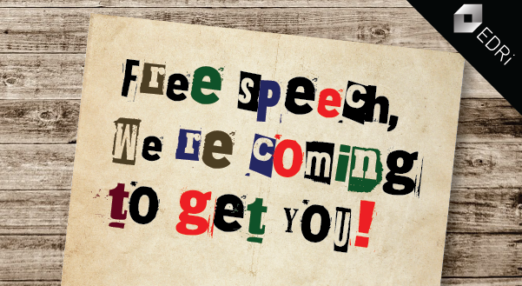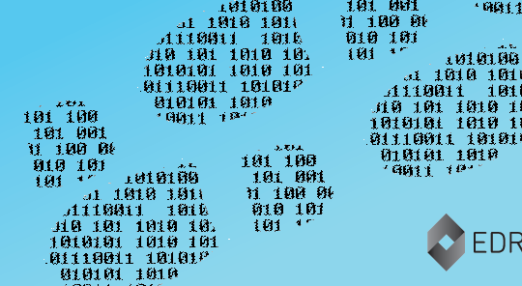Our work
EDRi is the biggest European network defending rights and freedoms online. We work to to challenge private and state actors who abuse their power to control or manipulate the public. We do so by advocating for robust and enforced laws, informing and mobilising people, promoting a healthy and accountable technology market, and building a movement of organisations and individuals committed to digital rights and freedoms in a connected world.
Filter resources
-

Commission Report on child protection online lacks facts and evidence
In December 2016, the European Commission issued two reports on the implementation of the Directive on combating the sexual abuse and sexual exploitation of children and child pornography (Child Exploitation Directive, 2011/92/EU): a general report and a specific report about Article 25 of the Directive, which covers removal and blocking of child abuse, child exploitation and child […]
Read more
-

Dissent in the privacy movement: whistleblowing, art and protest
This is the first blogpost of a series, originally published by EDRi member Bits of Freedom, that explains how the activists of a Berlin-based privacy movement operate, organise, and express dissent. The series is inspired by a thesis by Loes Derks van de Ven, which describes the privacy movement as she encountered it from 2013 to […]
Read more
-

Latest copyright votes: Filtering, blocking & half-baked compromises
On 11 July, two Committees in the European Parliament voted on their Opinions on European Commission’s proposal for a Copyright Directive: the Committee on Culture and Education (CULT) and the Committee on Industry, Research and Energy (ITRE). CULT decided to abandon all reason and propose measures that contradict existing law on monitoring of online content. […]
Read more
-
No, you can’t enjoy the music you paid for, says EU Parliament Committee
A leaked European Parliament document exposes some of the most bizarre suggestions yet in the debates around the proposed new copyright rules in Europe. The proposal for the Copyright Directive is currently being debated in various European Parliament Committees. The leaked document shows that conservative, socialist and Green Members of the European Parliament (MEPs) in […]
Read more
-

Germany: Will 30 June be the day populism killed free speech?
On 30 June 2017, the German Parliament will vote on the bill on “Enforcement on Social Networks”, also known as the “NetzDG”. This draft law, if adopted, could seriously impair human rights online, including freedom of expression and opinion. That is why we tirelessly explored different ways to make sure the European Union (EU) would […]
Read more
-

Are we on the right track for a strong e-Privacy Regulation?
European legislation protecting your personal data (the General Data Protection Regulation and Law Enforcement Directive on Data Protection) was updated in 2016, but the battle to keep your personal data safe is not over yet. The European Union is revising its legislation on data protection, privacy and confidentiality of communications in the digital environment: the e-Privacy […]
Read more
-

The Freedom Index – easing access to information on rights issues
A diverse group of human rights defenders in the EU has launched an ambitious project that aims to radically change the way information relating to human rights is organised. If successful, the initiative will create a system that can permanently identify and preserve all human rights data across all languages, and radically improve its availability […]
Read more
-

Denmark allows massive retention of location data for mobile internet
On 24 May 2017, the Danish telecom regulator announced its decision concluding that the retention of location data for mobile internet usage is lawful. With the decision, the regulator allowed for massive data retention, which seriously undermines citizens’ right to privacy, since it means they can be tracked at all times and the data is […]
Read more
-

An end to copyright blackmail letters in Finland?
On 12 June, the Finnish Market Court ruled in a case Copyright Management Services Ltd vs. DNA Oyj that Internet Service Providers (ISPs) are not obliged to hand out the personal data of their clients based only on the suspicion of limited use of peer-to-peer networks. Stronger proof of significant copyright infringements need to be […]
Read more
-

Proposed Copyright Directive – Commissioner confirms it is illegal
At a meeting of the European Parliament Committee on Legal Affairs (JURI) on 19 June, European Commission Vice-President Andrus Ansip made a statement that was both shocking and shockingly honest. He advertised the content filtering product of the US company Audible Magic as an affordable alternative to Google’s Content ID filtering technology for filtering European […]
Read more
-

Commission’s waiting game: Gambling with freedom of information
In April 2017, EDRi wanted to shed light on the industry lobbying in Brussels surrounding the copyright reform. We therefore filed a freedom of information (FOI) request to access the correspondence the European Commission received from rightsholders at the time it was finalising its proposal for the new Copyright Directive.
Read more
-

Access to e-evidence: Inevitable sacrifice of our right to privacy?
What do you do when human rights “get in the way” of tackling crime and terrorism? You smash those pillars of your democratic values – the same ones you are supposedly protecting. Give up your right to privacy, it is a fair price to pay for the guarantee of your security! This is the mantra […]
Read more
